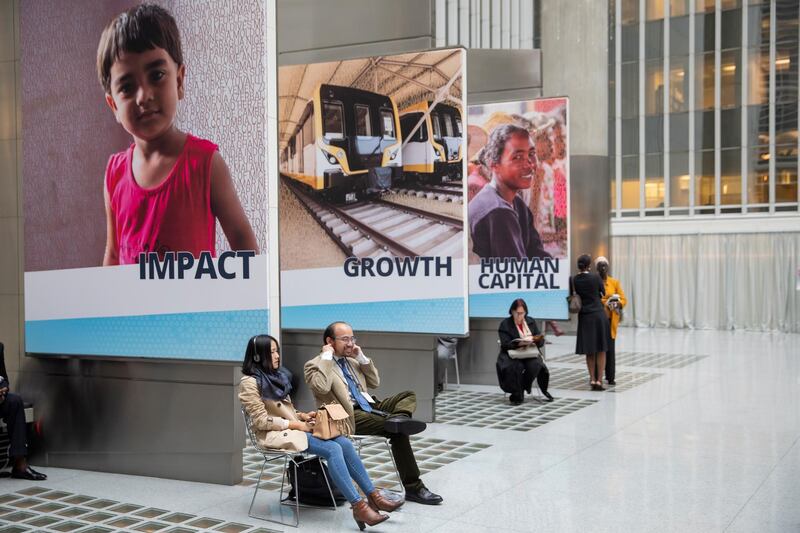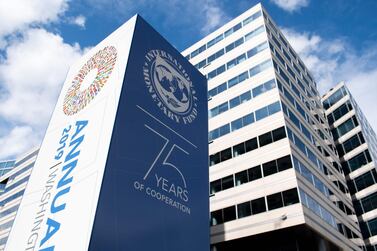Middle East and North African governments need to increase the momentum of reform, accelerate economic liberalisation, check monopolies and nurture a competitive environment that strengthens the private sector to boost growth and development, the World Bank’s chief economist for the region said.
"Mena is not evolving in a vacuum, it's a region that is relatively well integrated," Rabah Arezki, the World Bank's chief economist for the Middle East and North Africa region said in an interview with The National in Washington. "So, it needs to balance that sense of recreating the private sector as a genuine force for development. It needs to do that at the national level. But it also needs to develop a strategy at the more regional and global level."
The urgency of ushering in change at a faster pace is all the more compelling given the advent of the digital age and a growing population, where in some countries more than 60 per cent of citizens are under the age of 31. By 2050 there will be 300 million additional people coming into the labour market, and most Mena countries will double in size, according to World Bank data.
“This tells you that there is an opportunity, markets are getting bigger, creating the momentum for [a] productive domestic sector. All that is a potential for the region to…create more momentum,” said Mr Arezki. “But that cannot happen if we don’t have a conducive, competitive environment free of distortion…de-monopolisation, democratising the economy, leveraging technology.”
The region's uptake of technology, mushrooming of startups and emerging entrepreneurship environment are positive developments but not enough, said Mr Arezki. Governments should double down on the momentum of reform and open up economies as the region has a legacy of monopolies in the public and private sectors, he said.
“What we need for the region is a Sherman Act-like moment, a moment where we say monopolisation of the economy or attempts at monopolising the economy is a crime,” said Mr Arezki said.
The Sherman Antitrust Act of 1890 is a US antitrust law that regulates competition among enterprises and makes it unlawful for entities to gain monopoly power.
“We have great stories of technology startups emerging. That momentum is there, and young people are grabbing technology and getting at it,” Mr Arezki said.
“What is less well, is the path with which we are transitioning and fostering that momentum that technology and the youth spirit brought,” he added. “This is precisely the time…the moment where we can grab that adjustment and macro-stabilisation and take it to a new level. That’s not going as fast as it should. This is a critical juncture, there is a kind of a baton that needs to be passed from the macro-adjustment to the deeper reform and the speed of that is not fast enough.”
Growth in the region tapering off. Last week, the World Bank revised the region’s economic growth forecast to an average 0.6 per cent this year, a 0.8 percentage point drop from its April forecast. Growth in the Mena region is forecast to rise to 2.6 per cent in 2020 and 2.9 per cent in 2021.








